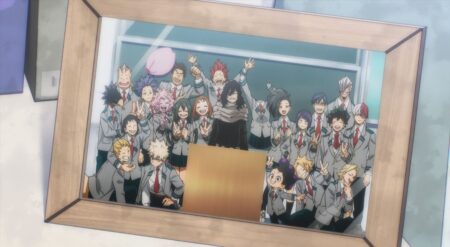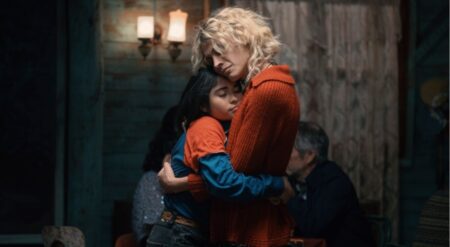This interview with writer/director Kim Sung-yoon was conducted via translator Shelly Bahng and edited for clarity.
Kim Sung-yoon’s Fragment opens up important discussions surrounding the treatment of children whose parents have committed crimes, not just in Korea but globally as well. When it comes to crime, particularly crimes like rape and murder, more often than not, the media and, by extension, society as a whole, focus on the criminals and the immediate victims of a crime. While some focus may shift to family members of the victim, those related to the criminals are not so lucky, facing a loss of identity and retaliation in the aftermath.
Children are the central focus of Fragment, not the crime that has taken place. Shifting the focus away from the crime was an intentional decision for Kim Sung-yoon in the writing process, making sure that the attention never strayed away from what really mattered: “I didn’t want to focus on the murder itself. I didn’t want to show the violence, the blood, or brutality of it,” he explained. “I wanted to focus on the lives of the children. They’re just children who also need care and deserve help.”
The situations the children face in Fragment are incredibly daunting. After his father is arrested, Jun-gang (Oh Ja-hun) is forced to take on the responsibilities of an adult and tries to protect his little sister (Kim Gyu-na) from the truth. Instead of focusing on school, he has to try to find work to keep a roof over their head. Gi-su (Moon Seong-hyun) is left to cope with his parents’ murder, overwhelmed by guilt and pain. For all children, there is a loss of innocence, but there’s less empathy for Jun-gang and his sister due to what their father has done.
Children are the heart and soul of Kim Sung-yoon’s Fragment.

With his direct approach to the subject, Kim Sung-yoon effectively highlighted the stress experienced by the children onscreen. “In really trying to focus on the children, on their faces, and the situations that they’re in, it became clear that the situations that they’re in are very scary,” he shared. “The audience could feel the tension and the severity of the situation.” As things continue to spiral out of control for Jun-gang and his sister, the camera never wavers, forcing the audience to watch as their lives start to fall apart.
Much of the film relies on the strength of the performances from its child actors, who are required to deliver highly physical and emotional performances. Auditions consisted of several rounds, with over 300 child actors being seen during the casting process, with a specific goal in mind: “I really wanted to find actors who felt like children rather than actors, who also felt like they were treating me less like a director and more like an older brother or uncle.”
While filming, his approach to directing the child actors was to prioritize treating them more like children rather than professional actors. However, when it came to highly technical scenes like action scenes, he realized he needed to adjust his approach: “Lowering the level I was speaking in actually caused more issues, whereas when I was more straight up with them, they felt more comfortable just asking questions when they didn’t understand something.” By adjusting his process, he was able to address any issues and nail down these intense scenes.
Kim Sung-yoon hopes people will consider what they might do to help children in similar situations.

Reading an essay by the director of a charity organization that focused on assisting children of prisoners sparked Kim Sung-yoon’s interest in the subject matter but also marked a turning point for the director personally and professionally: “Through writing [this film], I actually learned more about myself and how to see the world in more detailed and delicate ways.” And by making Fragment his directorial feature debut, Sung-yoon quickly learned that he had what it took for this next step in his career.
As an assistant director on thriller films such as The Vanished and Bring Me Home, there were so many people on set that he could rely on. However, as the director, he was the one everyone turned to, making the pressure to succeed more intense. “Every day I would doubt, like, am I trustworthy? Am I doing okay? Am I leading well?” he shared. “But naturally over time, I accepted that responsibility.”
Much like the essay that inspired him to make Fragment, Kim Sung-yoon hopes that his film sparks people to think about children like Jun-gang in their daily lives: “I hope they consider that these types of situations, and children with these lives happen, and they could be near them as well. There could be a child somewhere with this situation.” And while the director doesn’t want to change the world, he hopes that people will begin to ask questions about what they can do to help kids in a similar situation.
As Fragment continues to spark conversations on the film festival circuit, Kim Sung-yoon will start shooting a comedy in August, marking a swift change of genre for the director. ” I consider genre as sort of like the coat of a film. And so, I hope that the audience is curious about how I’ll take on a comedy.” After watching Fragment, all I can say is that the audience will definitely be curious to see where Kim Sung-yoon explores next.
Fragment played as a part of the 2025 Fantasia International Film Festival.







